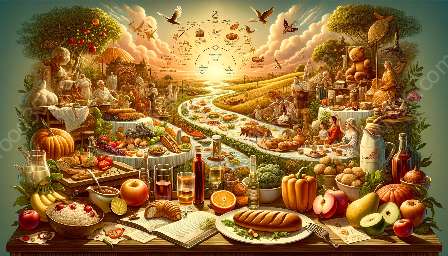Vegetarianism has gained widespread popularity in modern times, with more and more people embracing a plant-based lifestyle. However, the roots of modern vegetarianism can be traced back through history, showcasing a rich and diverse tapestry of cultural, religious, and philosophical influences.
The Historical Roots of Vegetarianism
The concept of vegetarianism has ancient origins, with evidence of meat abstention dating back to ancient civilizations such as India, Greece, and Egypt. In India, the practice of vegetarianism was deeply rooted in the religious and philosophical beliefs of Hinduism and Jainism, which promoted compassion and non-violence towards all living beings. Similarly, in ancient Greece, figures like Pythagoras advocated for a plant-based diet, emphasizing the ethical and health benefits of abstaining from meat.
- Vegetarianism in Religious and Philosophical Traditions
Throughout history, various religious and philosophical movements have played a pivotal role in shaping the principles of vegetarianism. In addition to Hinduism and Jainism, other major world religions, including Buddhism and Taoism, have also endorsed vegetarianism as a means of ethical living and spiritual enlightenment. These traditions underscore the interconnectedness of all life forms and the importance of mindful consumption, laying the groundwork for the modern vegetarian movement.
Vegetarianism in Cuisine History
The impact of vegetarianism on cuisine history is profound, influencing the development of diverse culinary traditions around the world. In ancient civilizations, such as the Roman Empire and Han Dynasty in China, vegetarian dishes were considered a symbol of wealth and sophistication, leading to the innovation of intricate vegetarian recipes and cooking techniques.
- The Evolution of Vegetarian Cuisine
As societies evolved, the concept of vegetarian cuisine continued to flourish, giving rise to a multitude of meatless dishes that showcased the culinary creativity and resourcefulness of different cultures. From the flavorful plant-based curries of India to the delicate meat substitutes of ancient China, vegetarian cuisine has continually adapted and expanded, blending traditional ingredients with innovative cooking methods.
The Influence of Modern Vegetarianism
In contemporary times, the influence of modern vegetarianism extends beyond individual dietary choices, shaping food production systems, environmental sustainability, and ethical considerations. With a growing emphasis on reducing the consumption of animal products, there has been a surge in plant-based alternatives, innovative cooking techniques, and global culinary trends that cater to vegetarian and vegan preferences.
- Impact on Culinary Practices
Modern vegetarianism has revolutionized culinary practices, inspiring chefs and food enthusiasts to explore a diverse array of plant-based ingredients and cooking methods. This shift has led to the reimagining of traditional dishes, the creation of innovative meat substitutes, and the integration of vegetarian cuisine into mainstream culinary offerings, leading to a more inclusive and sustainable food landscape.
To sum up, the roots of modern vegetarianism run deep in history, intertwining with cultural, religious, and philosophical beliefs while leaving an indelible mark on the evolution of cuisine. From ancient civilizations to contemporary society, vegetarianism continues to evolve, offering a compelling narrative of ethical living, culinary ingenuity, and a profound connection to the natural world.

